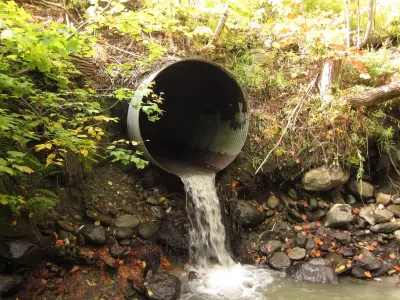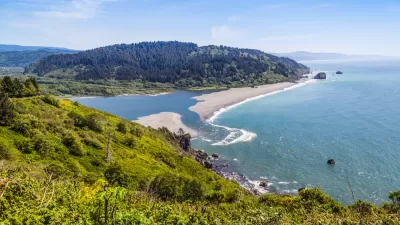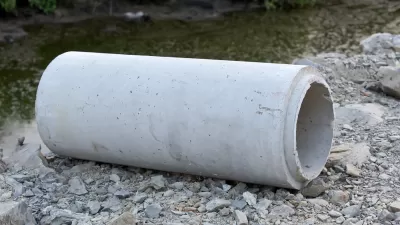Orcas and tribes depend on salmon, but culverts are blocking the fish from reaching breeding grounds. The state is struggling to come up with funding to remove and repair the infrastructure.

The status of salmon is critical in Washington because the fish are an essential food source for orcas and tribes depend on salmon fisheries. Culverts that move water downstream are keeping salmon from traveling to breeding streams, reports Brad Shannon. The state needs to come up with $3.1 billion to take out or fix the pipes and structures and make the streams accessible to the fish.
The state needs to move quickly, as the orcas are facing extinction and a federal court decision in favor of tribes requires that the streams be opened to salmon runs. But legislators are not sure where the funding will come from. "In what looked like a potentially major step forward, Gov. Jay Inslee in December proposed to spend more than $1 billion over the next two years on orca and salmon recovery, including ongoing commitments to improve Puget Sound water quality and fish habitat," Shannon writes.
Another possible source of funding would be a carbon tax and gas tax increase, part of a transportation bill making its way through the state legislature. "[Steve] Hobbs’ plan, which includes controversial fees on new construction projects, specifically would cover culvert costs and pay for major highway projects such as a bridge over the Columbia River and new electrified ferries," says Shannon.
Opponents say they do not want to support the two funding options because they involve new taxes, and some legislators say they need to look to short-term solutions to cover the culvert project. "[Christine Rolfes] said it is possible the Legislature will again take a more piecemeal approach to this budget challenge, rather than adopt a whole-hog approach, as embodied in Inslee’s proposal with real estate taxes and in Hobbs’ carbon-tax proposal," notes Shannon.
FULL STORY: Fixing culverts could save the orcas — but who will pay?

Alabama: Trump Terminates Settlements for Black Communities Harmed By Raw Sewage
Trump deemed the landmark civil rights agreement “illegal DEI and environmental justice policy.”

Planetizen Federal Action Tracker
A weekly monitor of how Trump’s orders and actions are impacting planners and planning in America.

Why Should We Subsidize Public Transportation?
Many public transit agencies face financial stress due to rising costs, declining fare revenue, and declining subsidies. Transit advocates must provide a strong business case for increasing public transit funding.

Understanding Road Diets
An explainer from Momentum highlights the advantages of reducing vehicle lanes in favor of more bike, transit, and pedestrian infrastructure.

New California Law Regulates Warehouse Pollution
A new law tightens building and emissions regulations for large distribution warehouses to mitigate air pollution and traffic in surrounding communities.

Phoenix Announces Opening Date for Light Rail Extension
The South Central extension will connect South Phoenix to downtown and other major hubs starting on June 7.
Urban Design for Planners 1: Software Tools
This six-course series explores essential urban design concepts using open source software and equips planners with the tools they need to participate fully in the urban design process.
Planning for Universal Design
Learn the tools for implementing Universal Design in planning regulations.
Caltrans
Smith Gee Studio
Institute for Housing and Urban Development Studies (IHS)
City of Grandview
Harvard GSD Executive Education
Toledo-Lucas County Plan Commissions
Salt Lake City
NYU Wagner Graduate School of Public Service





























